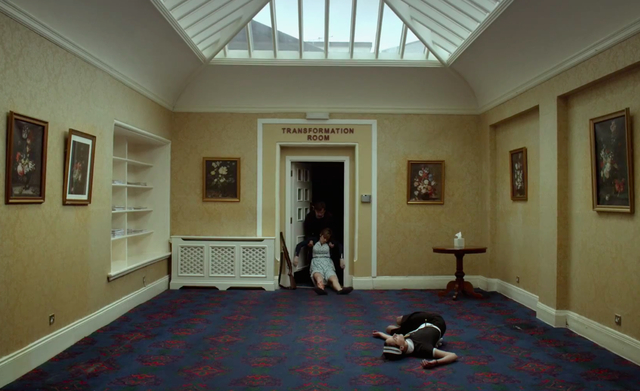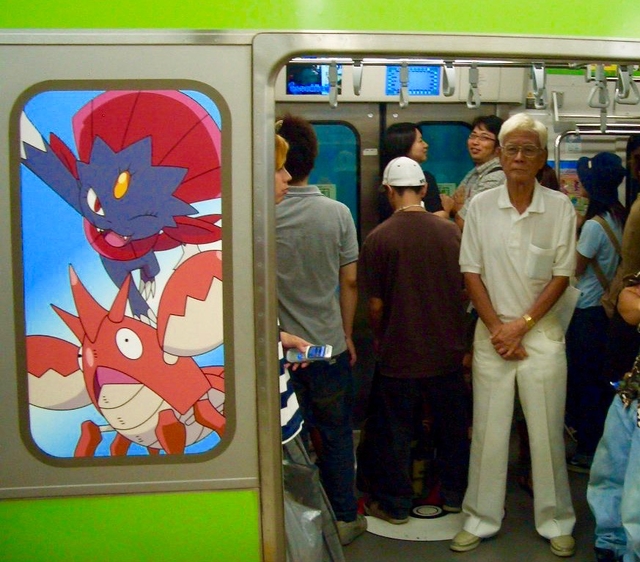Walking out of Yorgos Lanthimos’ The Lobster the other night, I felt like I’d been holding my breath for two-plus hours. Rarely has my intellectual judgment of a film differed more sharply from my immediate emotional response to it. I never doubted that it was “good”, but I also wondered if it was good for me.
About half way through, I realized that I was hunched over in my seat, rocking back and forth, teeth clenched. Soon after, I started checking the time. The film seemed interminable. But I also sensed that I was somehow obligated to stay and suffer. Despite the physical manifestations of my discomfort, not to mention that the day had been brutally hot, I hadn’t even touched my water. It was an endurance test.
For me, becoming a true cinephile was inextricably bound up with learning to distinguish between the experience of watching films for the first time and the experience of processing them afterwards, whether in exchanges with friends or during second, third or fourth viewings. So long as I remembered what it felt like the first time and kept that memory reasonably uncontaminated by subsequent reflection, I could avoid the mistake of confusing my response to the film itself with the pleasures of making sense of it.
This skill is especially important when conducting political analysis. A well-done car chase will almost always lead me to enjoy a film in the moment. But there is a major difference, to give two of the most famous examples, between the context of the chase in Bullitt and the one in The French Connection. Although both films are full of material that can provide cinematic pleasure, they are sharply opposed from an ideological standpoint. Steve McQueen’s eponymous protagonist in Bullitt is a hip anti-Establishment figure, happy to piss off the wealthy and powerful.; Gene Hackman’s Popeye Doyle in The French Connection is far more conservative, willing to use his badge to justify police brutality. They are both relentless in pursuit, yet with different motives and outcomes.
Although I cannot help but root for each one during their chase scenes, which are constructed to maximize identification, I need to be able to distance myself from them once the films are over if I want to produce an analysis that doesn’t merely expand upon that initial rooting interest. Is Frank Bullitt’s desire to keep his girlfriend in the dark about his professional life really as chivalrous as he would like to believe? And does her reaction, upon getting a glimpse into the ugliness of his work, offer a way to call his cool masculine image into question? Is Popeye’s overtly racist bluster in any way redeemed by the discovery that he is is working with an undercover operative who could be put at risk by a more civilized approach? How much does the ending of The French Connection problematize not only Popeye’s worldview, but that of anyone who prefers to act while important facts remain unknown.
These are important questions to ask. But they are difficult to pose during a first viewing. In a sense, that is the underlying function of the entire action movie genre, to keep audiences in a state of suspended reflection. When you are constantly on the edge of your seat, physically manifesting your identification with characters undergoing extreme trials, critical distance is almost impossible to maintain. And the more you experience that sense of visceral immersion, presumably, the easier it will be for someone to entice you into a thrill ride that takes place outside of the cinema.
The Lobster kept me on the edge of my seat, but with strikingly different results. Instead of providing a means to flee my everyday life temporarily, it reminded me over and over of the parts of my life I may never be able to escape. Moreover, the film evoked this dispiriting realization in a story suffused with magic realism. Despite requiring a substantial suspension of disbelief, it simultaneously constricts the audience’s capacity for fantasy, shining a harsh light on the existential delusions — what Henrik Ibsen refers to as “life lies” in his play The Wild Duck — that human beings turn to for sustenance.
In this regard, the film reveals a kinship with the work of directors like Todd Solondz and Michael Haneke, who refuse to let viewers get too comfortable. Its underlying conceit, that lonely singles would be willing to risk being turned into animals for the promise of finding a mate, may sound amusingly absurd on paper. But whatever comedy it leads to is too dark to induce much of a release. In the theater where I saw it, the twenty-somethings behind me would periodically laugh out loud, as if hoping to garner the support of their fellow movie-goers. Every time, though, their mirth failed to spread, making it seem forced.
For my part, even when I found a particular line or image funny, I was too preoccupied with the big picture to enjoy The Lobster fully. The distancing voice-over narration, awkward interplay of bodies, and exchanges without passion all communicate a world drained of joy, in which E.M. Forster’s famous injunction to “only connect” has been reduced to its lexical minimum. I struggled to care about the characters because they could barely muster the energy to care about themselves. At best, I was able to sustain a slight rooting interest, far short of the intense identification I experience during a good action film.
But I was soon haunted by the realization that the characters’ shortcomings were perilously close to my own situation, in which I find it increasingly difficult to perform basic personal maintenance. I care for others — my daughter, her mother, my father — so much that I no longer have the inspiration to care for myself. Sometimes I abstractly speculate on what it would be like to pursue my own goals, perhaps even with the help of a partner as interested in me as she is in herself. More and more, though, I don’t even have the drive necessary to flesh out these modest fantasies. It all seems like too much trouble.
That’s definitely the sense one gets from The Lobster. Few of the people who arrive at its strange hotel in the hope of becoming part of a lasting couple prove willing to put in the effort it would take. One of the youngest and prettiest guests, resentful that her best friend has found a partner, allows her forty-five days to elapse without much resistance and is turned into a horse. Colin Farrell’s protagonist David brings along his brother Bob, who “didn’t make it” and was turned into a dog. Yet even the constant warning of his canine companion isn’t enough to prevent him from wasting days golfing all by himself.
Later in the film, after David has fled the hotel into a nearby forest populated by “Loners” who have foresworn the comforts of coupledom, he shows a bit more initiative in leading a romance with a woman he meets there. Because the Loner community strictly forbids any intimate activity, he and his partner must develop a secret code of gestures and movements to communicate with each other. The poverty of this body language is immediately apparent, however. Nor does it prevent the leader of the community from discovering their relationship and savagely punishing the woman.
In this way, the existence of meaningful outside resistance to the insane logic of the hotel is called radically into question. Escaping its disciplinary regime only seems possible for a short while. Whether you find a mate or not, whether you flee into the woods or are turned into an animal, your chances of finding true happiness are remote. Every instance of magic in the story just ends up confirming a reality devoid of it.
The ambiguous, yet undeniably bleak conclusion to The Lobster — one which I found especially unnerving, given what frightens me the most — confirms the double-sided message the film has been developing throughout: whether you consent to the belief that being part of a couple is the most important thing in life or vigorously repudiate it, you will still end up mutilated, and quite possibly by your own hand.
Because the film gives the audience plenty of time to think about the scenarios it depicts — one of the reasons why it feels so long — the typical division between the experience of watching it the first time and reflecting on that experience afterwards starts to blur. The further away I get from that first time, the easier it is to do that thinking without feeling so uncomfortable in the process. But the content of my reflections has not changed very much.
I knew The Lobster was a powerful film while I was watching it, even when I strongly desired not to be. And I continue to regard it that way now. Would I recommend it, though, to others? I can imagine the picture making most people uncomfortable and even more depressed. As a friend of mine noted when I expressed ambivalence about The Lobster after leaving the theater, life is short enough as it is without wasting time on activities that make us feel bad without doing much good. For all that, though, I have the sense that the film’s full impact on me has yet to be revealed, like a blow that only belatedly translates into a bruise.
To be sure, not many people are likely to seek out bruises. Pleasure will always hold more appeal than pain. Yet there is more potential for knowledge in the latter. Bruises tell us what we have failed to register, where we move too quickly or without sufficient awareness of our surroundings. They make our blind spots visible and testify to the gulf between the way we imagine our relations in the world and what they really constitute. Sometimes that’s a reasonable price to pay; in this case, it was the price of admission.
Film still courtesy of Yorgos Lanthimos





